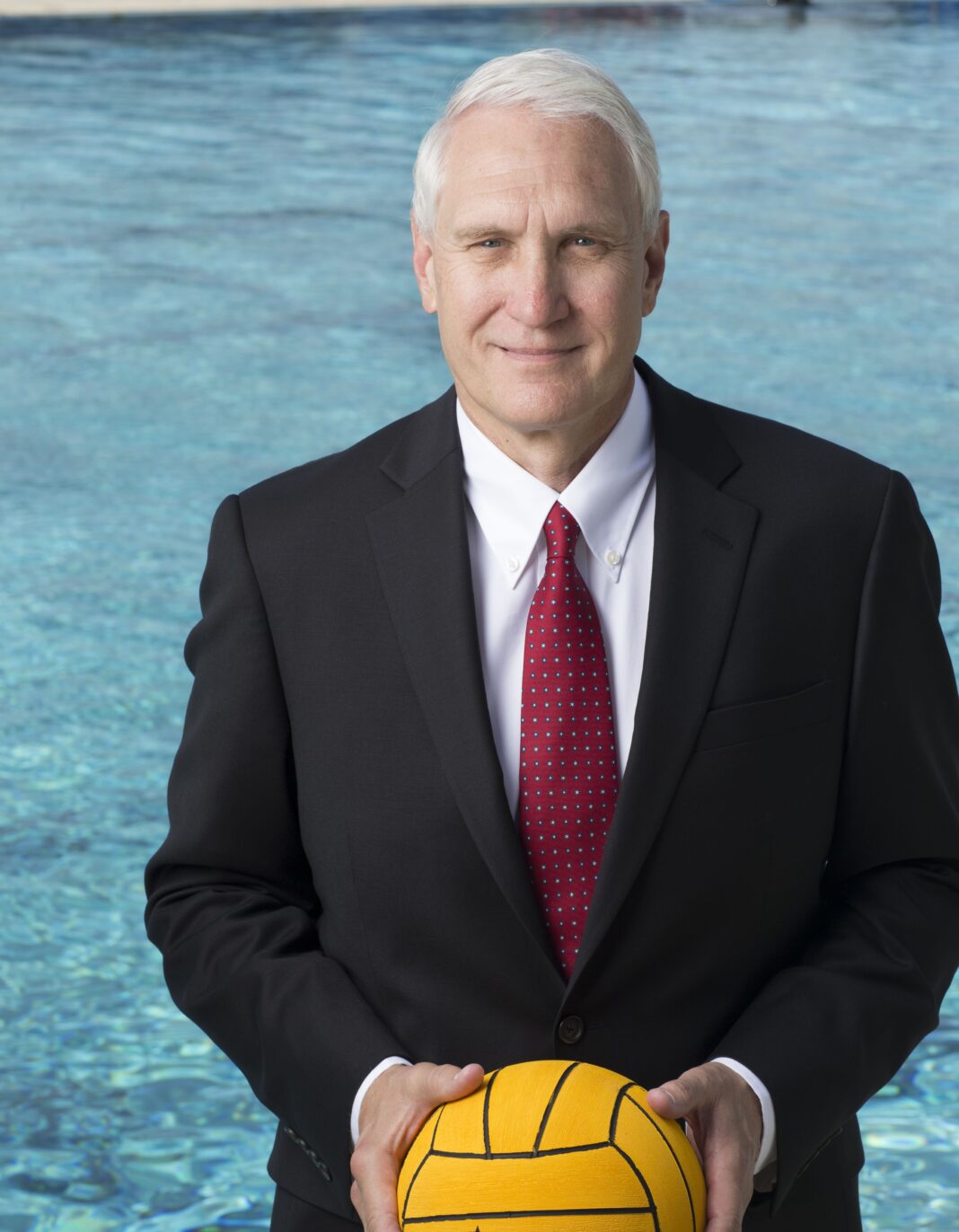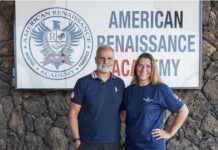Christopher Ramsey, the CEO of USA Water Polo, chatted with Markos Papadatos about his latest endeavors.
The late four-star U.S. Army general and former Secretary of State Colin Powell once said: “A dream doesn’t become reality through magic; it takes sweat, determination and hard work.” An individual who is the epitome of this quotation is Christopher Ramsey.
He is responsible for carrying out the mission of USA Water Polo domestically and internationally. His work includes oversight of Olympic and national team programs, sport development (including membership programs and services), marketing and brand identity, international relations, along with finance and administration. His goals for the federation are sustained competitive excellence and national growth of the sport. He is committed to leading the federation by ensuring a stable and transparent financial base, a compelling brand identity and an ethical foundation for its work.
Prior to joining USA Water Polo in 2006, he was one of three principal administrators for the New York City Ballet, where he was responsible for the company’s earned and philanthropic income as well as its endowment initiatives. His areas of oversight included development, marketing and communications, educational programs, special media such as film and publishing, online media, editorial and archival services, volunteer and program resources, and retail operations.
A cum laude graduate of the University of Redlands in Music and English, he played varsity NCAA water polo and also attended Cambridge University through an exchange program, where he also played basketball.
He earned a Master of Fine Arts degree from Cornell University in Creative Writing, where he was awarded the Andrews Prize for Fiction in 1980. While at Cornell he studied with A.R. Ammons, Alison Lurie, Lamar Herrin, and Richard Wilbur, later lecturing there in English Literature and Composition. More recently he earned a certificate in Olympic Sport Leadership from the U.S. Olympic Committee and the Kellogg School of Management at Northwestern University.
He serves as a member of the National Governing Body Council, the Olympic-NCAA Liaison Committee, and the Best Practices and Advisory Council of the US Olympic Committee. He is also a member of the Association of Chief Executives of Sport. He lives in Irvine, California, with his wife Lynne, and has three sons, Colin, James, and Evan.
How long have you been CEO of USA Water Polo?
I joined USA Water Polo in the fall of 2006, so almost 17 years.
What does your job description as CEO involve?
CEO jobs by nature require relentless focus on the big picture while realizing that no detail is too small a part of your identity. In other words, we pursue audacious goals while also paying attention to every detail. At an Olympic governing body, I focus on recruiting the best talent to run our teams and programs as well as securing and organizing the resources necessary for success. If it was a chart, my pie would include talent management/HR, media and identity performance, strategic planning, program operations, fundraising, athlete safety, finance and administration, compliance, and business development.
What do your plans for the future include with USA Water Polo?
Since we are based in Southern California, we are pointed toward the LA Olympic Games in 2028. We want our athletes and teams to perform their best, and we also recognize that having the Games locally can inspire more young people to take up our game. In addition to the Olympics, we are committed to truly nationalizing our sport beyond its traditional California concentration. Texas recently announced water polo as its first new varsity high school sport in nearly 25 years, and there are other states like Michigan and Utah that may well follow suit.
Where do you see USA Water Polo in the next five years?
I think we can dramatically increase the sports profile in the USA and also increase our membership from 50-75 percent – directly engaging nearly 100,000 athletes around the country. I believe both our men’s and women’s teams will have a shot to win medals – preferably gold medals – at the LA Olympic Games, and I think our revenue base will also grow dramatically. Most important is sharing our love for water polo with a nation where drowning is the number one cause of death for children. We can not only change live; we can change lives. Water polo’s intensive training regimen has an impact on young people. We want to motivate and inspire future generations of athletes, coaches, and families.
What motivates you each day?
I enjoy a challenge, and I like to win in business as much as I do in sport. Working with a cohesive team of professionals committed to the highest standards of performance is exciting to me. I’m also a long-term guy, and I’ve been moved not so much by our immediate progress as a company but by the progress our athletes and programs have had on our nation’s young people.
How does it feel to be a CEO in the digital age? (Now with streaming, technology, and social media being so prevalent)
It’s easy to feel information overload, and it’s been an adjustment for me. I suppose anyone with a computer and a search engine can become an expert on something in 30 minutes or less, so our society actually values information less than when I was coming up the ranks.
On the other hand, vision and judgment are overlooked since every day brings a fresh news cycle and social media allows the promotion of myriad – often phantasmagorical – points of view. It can be confusing. Part of my responsibility is helping those focused on our sport to have context and perspective – so that they can be a positive influence on the choices we all face together. I like the fact that our member base is passionate about our sport, and many good ideas have come about because more people have a voice.
Were there any moments in your career that helped define you?
The first time I closed a $35 million sponsorship deal back in the early 90’s was a key moment. I would say that generating large amounts of revenue has been a hallmark of my professional life. Another key moment was choosing to work at the New York City Ballet for nearly a dozen years, where I reconnected with my creative side, publishing books and producing films and videos on ballet that made it more widely accessible. Things like The New York City Ballet Workout, which was the precursor to “ballet barre” fitness programs. It was an Amazon bestseller as a video, and brought tens of thousands of new audience members to NYCB. That kind of interdisciplinary thinking has become a hallmark for my professional life.
What does the word success mean to you? (My favorite question)
Balance. Professional accomplishments without a satisfying personal life can be empty. My wife and family, my colleagues – they help keep me level. I also work at my artistic and physical sides in my own way. As Satchel Paige said, “Don’t look back. Something might be gaining on you!”
What would you like to tell our readers about USA Water Polo? (What’s the one thing you want them to get out of it)
Water polo produces tough competitors whose life is positively changed by the sport. It is expanding because in a society where many things come easily, water polo represents a more challenging path. That path stays with people beyond their playing days, and has led to success beyond the pool and well beyond the relatively small footprint of the sport. Water polo players lead or have led a surprising number of major companies – Google, Nike, Oracle, Salesforce, McKinsey. There’s a reason for that.
To learn more about USA Water Polo, check out its official website, and follow its Instagram page.









